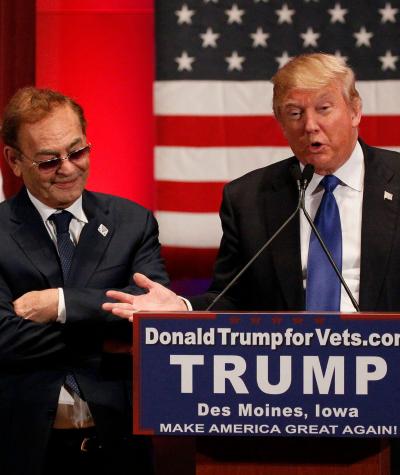New information reveals that President Trump may have illegally financed his 2016 campaign with a secret loan that potentially exceeded legal limits. Voters in 2016 had a right to know where Trump was getting the money for his campaign.
If Trump secretly financed his 2016 campaign using an undisclosed bank loan backed by a billionaire developer, then voters have been illegally deprived of important information about the true sources of Trump's financial support.
As laid out in the latest report in The New York Times series examining Trump's tax returns, in September 2016, at the height of the presidential campaign, Trump quietly took out a multi-million dollar loan in the name of an LLC that he jointly owns with billionaire developer Phil Ruffin, with Trump Tower Las Vegas as collateral.
Tax records show that the LLC paid Trump over $21 million in 2016 and claimed a tax deduction on the payments. Six weeks after obtaining the loan, Trump gave $10 million to his campaign. Federal law requires that candidates disclose bank loans used in connection with their campaign.
Additionally, if the LLC took a tax deduction for the payments to Trump, it would mean that Trump secretly relied on taxpayers to help subsidize his 2016 campaign.
Disclosure to voters in 2016 would have been important, since Trump’s claim that he was self-financing his campaign was central to his campaign message and created a veneer of credibility for him to accuse rivals of being beholden to wealthy special interests.
The Times also reports that Ruffin may have guaranteed the loan. Under campaign finance law, such a guarantee is treated as a contribution to the candidate, subject to legal limits and reporting requirements.
If Ruffin guaranteed the loan, he would have made a multi-million dollar illegal contribution to the Trump campaign. Trump would have violated the law by accepting an excess contribution from Ruffin in the form of a loan guarantee and failing to report it.
If Trump took out a bank loan in the LLC’s name for the purpose of financing his election, then the Trump campaign violated its legal reporting requirements by failing to disclose the loan, and failing to disclose that Trump's Vegas property was used as collateral.
To reduce political corruption, we need real transparency about who is spending big money on elections.
